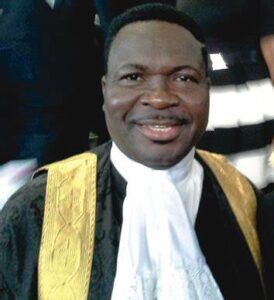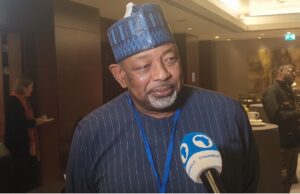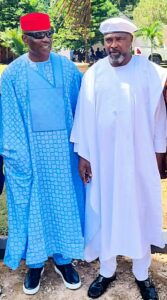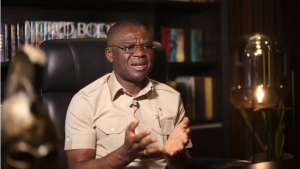Gauging The Temper of Nigerian Judges
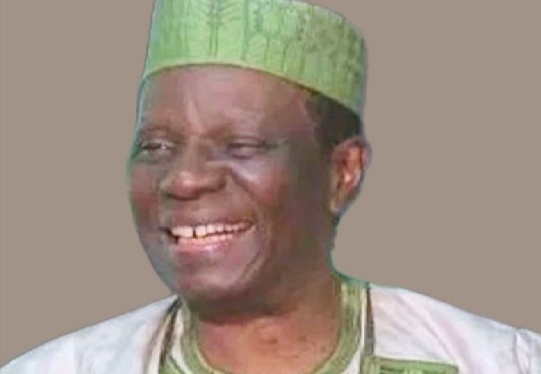
Tonnie Iredia
By Tonnie Iredia
There are many benefits of the knowledge of law. To start with, it positions those who are so privileged at a higher pedestal than virtually every other person.
But in recent times, it has become obvious that not many members of the legal profession including those who prioritize advocacy fully appreciate the critical role of communication in society.
The simple truth is that irrespective of anyone’s profession, content – a basic term for what is said or written has to be guided by context which refers to when, where, why and how it was communicated. Judges in particular need to become more aware of this because with a growing increase in the level of public awareness, many Nigerians now take greater interest in judicial pronouncements and any type of communication by different courts.
In the past, people usually stopped at who won or lost a case; it is no longer so as many people now inquire into the reasons which informed a judgment.

In some cases, there are people, who go to the extent of suggesting that some judges were probably drunk when they delivered certain judgments.
To think that all those who have such inclination are bad losers is simplistic. ‘Obiter dicta’ – a legal term for passing certain (off the course) statements within a judgment would be the first of concern in today’s world.
If such statements are really unnecessary because whether they are made or not would not affect the judgment, the less such statements are made, the better for a healthier relationship between judges and ordinary people. This is because any statement made by a judge matters to a typical citizen.
The way the last Osun state governorship election petitions were handled gave members of the public ample concern.
For once, it showed that contrary to what is always canvassed, it is not only what is before a judge that matters to every judge.
Some judges can put up a worrisome posture. The Osun tribunal chair for instance allowed the public to imagine that he has for long been envious of the special talents of governor Ademola Adeleke.
But then, what matters in governance is not a person’s hobby, vocation or side attraction but his ability to meet the purpose of the office he occupies.
From the performance of different persons that have held the office of governor in Nigeria, no one can point at a particular mannerism that best fits a governor.
Besides, the Osun people whose role it is to elect a governor of their choice have always known Adeleke to be an expert dancer, he had earlier danced skilfully and severally as a senator and member of a family of great musicians.
It therefore made little sense that a judge who doesn’t like dancers attempted to alter the conscious choice of the people.
Rather than focus on the documents filed by parties involved in the election petition, the judge decided to add not only Kiss Daniel’s song ‘Buga’ but went ahead to criticise the dance steps of Adeleke as if he wanted to halt the ‘makosa.’
Indeed, there are those who attribute Adeleke’s loss in the case to this aspect that was added to the issues at stake. Luckily, the higher court ignored this obnoxious aspect and affirmed Adeleke’s victory.
If certain analysts are unduly sensitive to the temperament of a judge, the same is true of many judges to public opinion.
In his days as judge, the legendary Chukwudifu Oputa now late, once argued that independence of the judiciary does not just end with financial autonomy.
According to Oputa, the personal capacity and charisma of judges especially their ability to rise above the local pressures of the moment also matter.
The 2023 presidential election petitions tribunal gave a judgment that many may not have liked, but there were many others who liked the judgment and in fact hailed the judges. Unfortunately, the tribunal failed to rise above the emotions of the moment by ignoring whatever insinuations any person attached to the popular ‘All eyes on the judiciary slogan.’
While the slogan could have been seen by some people as all eyes on corrupt judges, it may also have been positively seen by some other people as all eyes awaiting justice from the last hope of the common man.
There were several persons who took middle of the case position and merely hoped that the judgment would be a testament to Nigeria’s democratic principles.
It was sad that the tribunal allowed everyone to see that the slogan and the posture of its perceived authors affected the tribunal to a point of anger.
The judiciary made it seem as if the third arm of government which is expected to at all times discharge its functions without fear or favour looked as intimidated as officials of the Advertising Regulatory Council of Nigeria (ARCON) that hurriedly pulled down the slogan’s billboards.
The judiciary is expected to settle all matters before it. The apex court which in particular is our last available platform should therefore not engage in sweeping issues under the carpet because if it does that, it would perhaps inadvertently be putting across an impression that it has something to hide.
For three years, Nigerians sought to understand how the ruling All Progressives Congress APC was able to participate in the 2019 governorship election in Imo state considering that its bonafide candidate,
Uche Nwosu was at the last minute disqualified. How then did the judiciary come about its determination that the same APC whose candidate was disqualified won the election?
About two months ago, the Supreme Court reportedly gave notice of its readiness to answer the thorny question. But just before the D-day, it shifted the hearing till after the new election fixed for November 11, 2023.
When it eventually heard the case, the communication many expected was for the court to say events had overtaken the case. Rather, the court came out with an angry narrative that the case was vexatious adding that it had decided to impose a fine of N40million on the counsel of the party seeking the justice of the case.
Of course, the court has huge powers to fine any litigant or his lawyer or both as it pleases but the fines will never tell Nigerians how a party whose candidate was disqualified by the judiciary from participating in an election turned out to win the same election.
If the case was so vexatious and supposedly too academic for the judiciary, it shouldn’t have taken more than five minutes to dismiss it as has now been done but why did the court engage in hide and seek for three years?
Should Nigerians allow their judiciary to become a victim of selective hearing by refusing to hear a particular question while it is busy hearing and answering similar questions here and there?
The dangers of doing so are many; one of which is that it could attract ample dosage of unreliability, clapping for one wrong doer, penalizing another and ignoring a third one notwithstanding that they all did the same wrong.
The case of Dame Pauline Tallen, a former minister of women affairs is relevant here. Tallen is at the verge of getting a ban from holding any public office in future for describing a court judgment as Kangaroo.
Whereas the court can penalize Tallen, it can however not stop there. It must similarly penalize others especially senior lawyers whose criticisms have since put our judiciary in disrepute.
If the judiciary does some good research, it might find that Tallen’s comments about the judgment concerned, may well be the most charitable across several communities.
For example, if the court Tallen reportedly contempted was diligent, the judgment she criticised would not have been overturned by the Court of Appeal. At this point therefore, careless judges need to wake up and emulate their diligent colleagues not only in what they say but also what people perceive through their body language.
To attain effective communication, the best option is to deploy a feedback mechanism so as to know whether the public that the judiciary often talks to is on the same page with judges. That would help an organization that is concerned with reputation management.
The judiciary can easily reduce what people are quarrelling with to points and counter points of law and not intemperate and unnecessary statements.
Also See: Breaking: President Tinubu Fires Managing Directors of FAAN, NAMA, NIMET, Others


